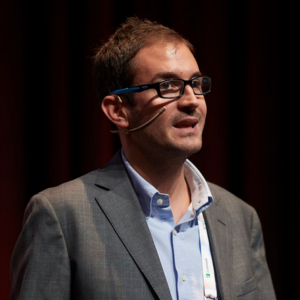openEHR International (CIC) oversees all openEHR operations, primarily through its three current programs – clinical, specification and education. Two directors are appointed by the openEHR Foundation, with up to six additional directors elected every two years by subscribing members from the individual, industry, or organisational groups.
CEO
CIC Board
Foundation Board
Organisational structure
The organisational structure of our governance can be tricky to understand. Here’s a quick explainer….
The openEHR Community Interest Company (CIC) trading as ‘openEHR International’ is a not-for-profit UK member-owned company, regulated by the Companies (Audit, Investigations and Community Enterprise) Act 2004, designed for social enterprises that want to use their profits and assets for the public good.
The openEHR Foundation is a not-for-profit UK company, limited by guarantee. It is regulated under the UK Companies Acts 1985 and 1989. The name ‘openEHR’ has been registered internationally as a Trade Mark. The main legal function of the Foundation is as the holder of its Intellectual Property, which it makes freely available.
As of 10th May 2019, operational management of Foundation activities is entrusted to openEHR International (CIC). This enables direct control of openEHR operational activities by subscribing members, through the election of CIC company members/ directors. Previous openEHR Management Board members became the Founding Members/Directors of the CIC.
The openEHR Foundation will remain in existence with the limited scope of continuing to hold openEHR Intellectual Property and appoints two Directors to the CIC. It is expected that the Foundation will merge into openEHR International in coming years.
There is an absolute commitment, backed up by Foundation/CIC Articles of Association, that all openEHR Intellectual Property will remain fully open and free to use in both commercial and non-commercial settings.
Principles
Licensing of openEHR artefacts is based on following principles:
▪️ openEHR Specifications, Software and Clinical Models (archetypes, templates and terminology subsets) available at no cost.
▪️ Specifications, open source software and Clinical Models can be used without restriction in commercial products.
▪️ Protection to ensure that authoring of derivative models (archetypes, templates and terminology subsets) by one party does not in any way limit the rights of others to create those same models.
▪️ Forms or other software artefacts using the models as inputs can be protected in the same way as any other work is protected commercially.
▪️ Query languages using the models may be freely developed and protected commercially without restriction.
▪️ The IP of the specifications of models (e.g. openEHR Reference Model, Archetype formalism etc) is protected by the Foundation independently of derivative expressions (e.g. ADL, XML etc)
▪️ Contributors are required to to declare if there are any current or future IP or patent claims in any content being contributed.
▪️ Clinical models based on copyrighted ‘scales’ or ‘scores’ (eg Glasgow Coma, Braden etc)
▪️ Use of terminology codes, value sets and reference sets to be governed by a formal agreement where appropriate.
The three areas of work that constitute the main Foundation IP are available for use according to the following:
Specification
Description: Official specifications of the Foundation, including source form and published form. Primarily maintained in the openEHR Github specifications-XX Git repositories.
Copyright: openEHR Foundation
Licence: Creative Commons Licence CC-BY-ND (Attribution, No derivatives)
Computable artefacts
Description: Recognised computable or formal artefacts, including UML model source files, XSD, JSON, REST API source files, and code examples. Wiki pages in the openEHR wiki Specifications space and ADL space.
Copyright: openEHR Foundation
Licence: Creative Commons Licence CC-BY-SA, for derived archetypes and templates only.
Clinical Models
Description: Archetype, Template, and Terminology source artefacts developed by the openEHR community and provided for hosting in the openEHR International Clinical Knowledge Manager (CKM).
Copyright: openEHR Foundation
Licence: Creative Commons Licence CC-BY-SA (Attribution + share-alike).
Specialised archetypes and templates
Description: Specialised archetypes and templates.
Copyright: openEHR Foundation
Licence: Creative Commons Licence CC-BY-SA
Software
Description: Open Source Software source code based on openEHR specifications and/or other openEHR artefacts. Most software found at GitHub/openEHR.
Copyright: openEHR Foundation, or original authoring organisation
Licence: Apache 2 License
Third-party IP is referenced in various ways within openEHR artefacts, primarily archetypes and templates. Such references do not generally constitute use of the 3rd-party IP as envisaged by its publishers, however use of the relevant openEHR artefacts (for example, in production health information systems) may well entail use of the referenced 3rd party IP, e.g. terminology codes. The developers of such deployments must therefore accept responsibility for ensuring legal use of relevant third party IP.
The openEHR Foundation has formal bilateral or unilateral agreements to reference the following types of IP in its published artefacts:
SNOMED CT terminology
CC-BY-ND
The use of the CC-BY-ND license allows for public sharing, republishing, and unencumbered commercial use. It protects users of the specifications from unknown and/or local modifications, tampering etc. being made outside of the Foundation’s own open processes. This is the same thing that W3C does with its document license.
The CC ‘SA’ (share-alike) option was also considered, but rejected for two reasons. Firstly the openEHR Specifications are considered definitive works of the Foundation, not interpretations of anything else. Their contents and evolution therefore accurately and correctly reflect the processes of the openEHR community itself. Secondly, the integrity of specifications on which healthcare software and systems are directly based is considered of paramount importance to patients and clinical professionals.
openEHR International, as an open community, wholeheartedly follows the guidelines of the Code of Conduct (CoC) as defined by the Apache Foundation.
The CoC applies to all communication spaces managed by openEHR International and the openEHR community, including mailing lists, issue trackers, wikis, blogs, twitter, LinkedIn etc.
While a CoC can never be complete, we believe the one made by the Apache Foundation provides a thorough understanding of how people can work together in a polite, friendly and productive environment.
The following is a copy of the guidelines:
Specific Guidelines
We strive to:
1. Be open. We invite anyone to participate in our community. We preferably use public methods of communication for project-related messages, unless discussing something sensitive. This applies to messages for help or project-related support, too; not only is a public support request much more likely to result in an answer to a question, it also makes sure that any inadvertent mistakes made by people answering will be more easily detected and corrected.
2. Be empathetic, welcoming, friendly, and patient. We work together to resolve conflict, assume good intentions, and do our best to act in an empathetic fashion. We may all experience some frustration from time to time, but we do not allow frustration to turn into a personal attack. A community where people feel uncomfortable or threatened is not a productive one. We should be respectful when dealing with other community members as well as with people outside our community.
3. Be collaborative. Our work will be used by other people, and in turn we will depend on the work of others. When we make something for the benefit of the project, we are willing to explain to others how it works, so that they can build on the work to make it even better. Any decision we make will affect users and colleagues, and we take those consequences seriously when making decisions.
4. Be inquisitive. Nobody knows everything! Asking questions early avoids many problems later, so questions are encouraged, though they may be directed to the appropriate forum. Those who are asked should be responsive and helpful.
5. Be careful in the words that we choose. Whether we are participating as professionals or volunteers, we value professionalism in all interactions, and take responsibility for our own speech. Be kind to others. Do not insult or put down other participants. Harassment and other exclusionary behaviour are not acceptable. This includes, but is not limited to:
▪️ Violent threats or language directed against another person.
▪️ Sexist, racist, or otherwise discriminatory jokes and language.
▪️ Posting sexually explicit or violent material.
▪️ Posting (or threatening to post) other people’s personally identifying information (“doxing”).
▪️ Sharing private content, such as emails sent privately or non-publicly, or unlogged forums such as IRC channel history.
▪️ Personal insults, especially those using racist or sexist terms.
▪️ Unwelcome sexual attention.
▪️ Excessive or unnecessary profanity.
▪️ Repeated harassment of others. In general, if someone asks you to stop, then stop.
▪️ Advocating for, or encouraging, any of the above behaviour.
6. Be concise. Keep in mind that what you write once will be read by hundreds of people. Writing a short e-mail means people can understand the conversation as efficiently as possible. Short emails should always strive to be empathetic, welcoming, friendly and patient. When a long explanation is necessary, consider adding a summary. Try to bring new ideas to a conversation so that each mail adds something unique to the thread, keeping in mind that the rest of the thread still contains the other messages with arguments that have already been made.Try to stay on topic, especially in discussions that are already fairly large.
7. Step down considerately. Members of every project come and go. When somebody leaves or disengages from the project they should tell people they are leaving and take the proper steps to ensure that others can pick up where they left off. In doing so, they should remain respectful of those who continue to participate in the project and should not misrepresent the project’s goals or achievements. Likewise, community members should respect any individual’s choice to leave the project.
Diversity Statement
The openEHR community welcomes and encourages participation by everyone. We are committed to being a community that everyone feels good about joining. Although we may not be able to satisfy everyone, we will always work to treat everyone well.
No matter how you identify yourself or how others perceive you: we welcome you. Though no list can hope to be comprehensive, we explicitly honour diversity in: age, culture, ethnicity, genotype, gender identity or expression, language, national origin, neurotype, phenotype, political beliefs, profession, race, religion, sexual orientation, socioeconomic status, subculture and technical ability.
Standards for behaviour in the openEHR community are detailed in the Code of Conduct above. We expect participants in our community to meet these standards in all their interactions and to help others to do so as well.












